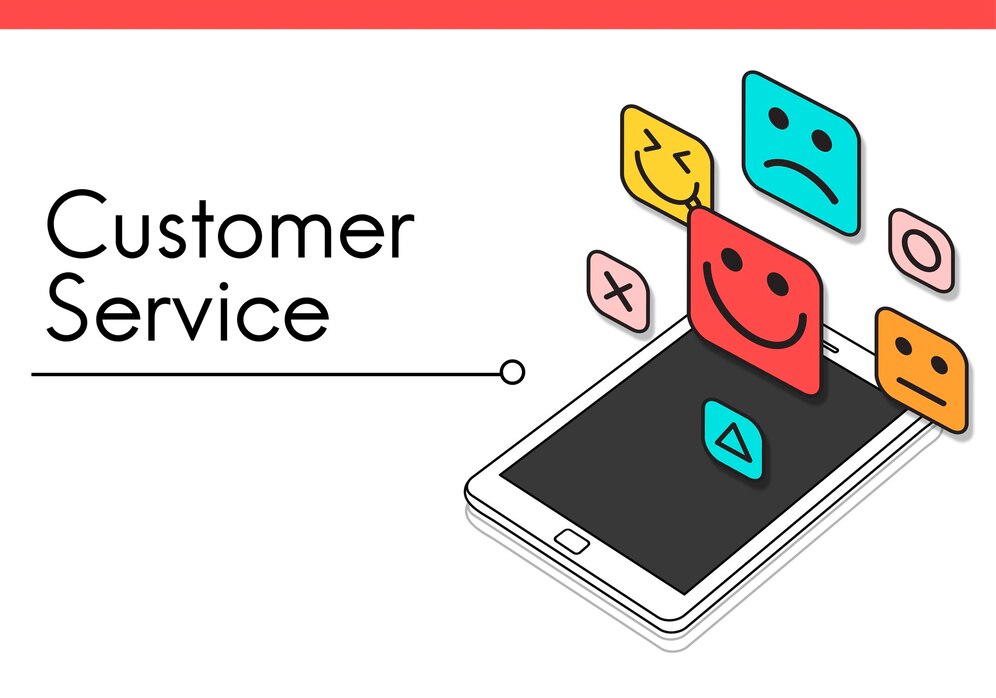Any business encounters a customer complaint at some juncture.
Despite the best of intentions, there will be situations when a client leaves feeling dissatisfied. Such a customer may initially try to seek resolution from the business itself, but increasingly, they are more prone to air their grievances on social media platforms.
When such negative feedback is published online, it becomes a permanent fixture. This puts business owners and managers in a position where they must make a choice: either overlook the complaint or use it as a platform to exhibit their c for everyone to witness.
Here Are Five Prime Reasons You Should Respond To Every Customer Complaint

Here are some reasons why responding to customer complaints is crucial for your business’s success.
1. Forge Strong Connections
Customers tend to be doubtful, particularly regarding reviews. Research indicates that only 39% of consumers believe retailers seriously consider their feedback and an additional 22% feel this simply never happens.
Making public responses to your reviews is the initial action towards alleviating these suspicions. Don’t solely concentrate on responding to negative feedback. Yes, one and two-star reviews should be addressed first, but recognizing customers who have given you positive reviews, even with a plain “thank you,” can greatly enhance brand loyalty and demonstrate to the world that you value every piece of customer feedback.
Ensure your responses strike the right note. This is your opportunity to initiate dialogue with your customers and exhibit the personable side of your brand, so think deeply about the image you want to project.
2. Motivate Employees
When your entire support team commits to elevating customer satisfaction by gaining insights from customer interactions, it naturally leads to fewer disgruntled customers and boosts motivation. Employees feel more motivated and their morale improves when they’re not constantly dealing with negative feedback or hostility in every interaction. If you’re overwhelmed, you could outsource professional answering services from Absent Answer to handle any high volumes of customer interactions.
3. Complaints Help to Pinpoint Defective Products
Regrettably, despite rigorous quality control measures, defective products occasionally reach consumers. Organizations need to be informed about these flawed items by customers to rectify similar issues that might exist in other products. This scenario is especially relevant when a discourteous employee interacts with customers over the phone.
Many individuals would prefer not to expend the effort to report such instances of rudeness. However, without this feedback, a manager may remain oblivious, potentially resulting in a single employee driving numerous customers away.
4. Complaints Pave the Way for Service Improvement Opportunities
Studies indicate that a customer whose concerns have been addressed satisfactorily tends to be more loyal than a customer who has never had any issues. Complaints provide a chance to demonstrate to the customer that their satisfaction is a priority for the business by implementing service recovery measures.
Numerous businesses implement a service recovery strategy to handle those occasional yet significant instances when customers feel their expectations have not been met. A well-executed service recovery program can potentially convert a dissatisfied customer into a loyal patron, who may be more satisfied than if they had never experienced problems.
5. Improved Digital Presence
Complaints on review sites and social media are becoming more common. While it might be disconcerting to publicly display a customer’s dissatisfaction, remember that potential customers expect to see some negative feedback. The key is demonstrating that your business is proactive and committed to satisfying its customers. Responding to complaints by regretting any less-than-positive experiences shows potential customers they can trust your service. In your response, highlight your eagerness to rectify the situation.
Once you’ve addressed the issue publicly, follow up privately as well. This prevents the possibility of an extended discussion overshadowing your initial response. Generally, you’ll be able to resolve the problem and, apart from maintaining a positive public image, you’ll also enhance your reputation with the affected customer.
Tips on How To Effectively Handle Customer Complaint
Responding to customer complaints as soon as possible is crucial as it sends a message to them that the business or organization values their concerns and feedback. Moreover, ensuring customer satisfaction also helps in building and maintaining one’s brand reputation. However, handling and responding to customer complaints is not an easy thing to do.
Here are some tips on how to effectively handle customer complaints.
Go Through The Complaint
The first step to effectively handling a customer complaint is actively listening to the customer and trying to understand the issues that they are facing with your product or service. If you are reading online reviews feedback or complaints sent via email, then don’t just skim through. Make sure to read the review thoroughly from top to bottom.
While reading through the reviews, you should also try taking notes such as product or service number, day and date of the incident, and any other information that you think is relevant. Carefully reading or listening to the complaint will help you to understand the issues and determine a suitable course of action.
Stay Professional and Apologise to the Customer
It can be difficult to accept criticism, be it online or face-to-face, especially if it is about your business that you have worked hard to build from the ground up. However, it is crucial that you stay calm while listening to or reading customer complaints, even if you think that they are wrong, lying, or being unreasonable.
Getting emotional or worked up over customer complaints and then reacting angrily in front of customers will only escalate the situation and harm your brand’s reputation. So be professional and apologize to the customer even if they are the ones who are in the wrong.
You should also be courteous and thank them for reaching out to you and voicing their frustrations and assure them that you are looking into the issue. Most of the time, apologizing immediately to the customer can go a long way toward defusing the situation.
Formulate A Course Of Action To Resolve the Customer Complaint
Once you have carefully heard or read the customer complaint and understood the issue, try to formulate a suitable course of action. Some problems can be easily resolved, while others may take some time. If the issue can be fixed easily, then you should get back to the customer as soon as possible with the solution. The customer will appreciate the promptness on your part, and it will go a long way in ensuring customer satisfaction.
However, there can be issues that cannot be resolved quickly. In that case, you should determine how much time it will take for you to fix the problem. At the same time, be honest with your customers and tell them that you will need some time to fix the issue and provide them with a timeline.
Here are some additional tips on what to do after the complaint is resolved:
- Follow up with the customer after the issues are fixed and make sure they are happy with the outcome. You can ask for their feedback on how you handled the complaint and what you can do better next time.
- Try to exceed their expectations by offering them something extra, such as a discount, a freebie, or a referral. This will help you turn a negative experience into a positive one and increase customer loyalty and retention.
Endnote
If you’ve been neglecting your reviews, feeling too anxious to reply, or simply haven’t had the opportunity, there’s no more suitable time to start than now. Responding to all your reviews, whether they are positive or negative, can contribute immensely to strengthening trust in your brand and depicting your company as one that genuinely listens and deeply values its customers.
Read Also:
- 5 Most Common Digital PR Mistakes And How To Avoid Them
- The 7 Steps to Create a Storybrand to Ensure Marketing that Works
- How Customer Success Can Help Grow Your Business























